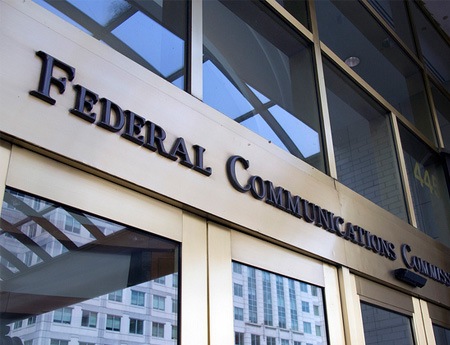ISPs: FCC Is Title II-Faced

The smarter way to stay on top of broadcasting and cable industry. Sign up below
You are now subscribed
Your newsletter sign-up was successful
Internet service providers told a federal court last week that DNS (domain naming) and caching (remote storage) can’t be considered information services when offered by third parties such as Google and telecommunications services—at least not when they’re offered by the likes of Comcast and AT&T, as the FCC would have the court believe.
In a reply to the FCC’s court defense of its decision to reclassify ISPs as Title II common carriers, cable and phone ISPs said that the commission’s brief confirmed that the FCC’s real goal is to impose those stricter common carrier regs on anyone it decides is a gatekeeper. And in this case, that would mean last-mile-provider ISPs.
The commenters—which included the National Cable & Telecommunications Association—told the U.S. Court of Appeals for the D.C. Circuit that the FCC “fundamentally misunderstands” DNS and caching.
They argue that since DNS allows “click-through” access between Web pages, as well as enabling parental controls and protection from scams, it provides important added value that is beyond merely managing a communications service.
“If broadband providers did not offer DNS as part of their Internet access service, mass-market consumers would find that service useless for accessing the Internet’s various applications,” they said.
As for caching—which is remotely storing some information to improve the customer experience—they argue it is clearly “information access and retrieval,” as the Supreme Court upheld in the Brand X decision in 2005.
In fact, the ISP arguments rely heavily on Brand X, which upheld the FCC’s prior determination that Internet access was an information service not subject to mandatory access rules.
The smarter way to stay on top of broadcasting and cable industry. Sign up below
But they also say that the FCC has not produced “any relevant facts about DNS and caching that have changed since it expressly told the Supreme Court they are information services that do not fall within the telecommunications management exception.”
As to the FCC’s argument that broadband providers use DNS and caching for different purposes than third parties, the ISPs say that is not only wrong (they say in both cases it is to improve user experience) but also irrelevant.
In fact, they argue, that third parties can offer both is evidence that DNS and caching do not “manage a telecommunications network” since ISPs wouldn’t, and couldn’t, give end users the power to allow third parties to manage their networks.
“In short,” the ISPs said, “the reclassification ruling is not the result of objective analysis by the FCC of changed facts that undermined its longstanding position. It is a naked effort by the agency to achieve its desired result—subjecting broadband to ‘Modern Title II’ by relying on indefensible (or irrelevant) assertions of purportedly changed circumstances.”
They also argued that the FCC’s case comes down to a plea to the court for deference for an “aggressive misreading” of Brand X in service of its goal of targeting ISPs as gatekeepers.
Final briefs in the case are due Oct. 13. Oral argument is set for Dec. 4. The new Title II-based rules have been in effect since June 12.
TWC GETS DOCKET LOVE
New Charter friends in high places are turning out in droves to put in a good word for the proposed merger with TimeWarner Cable and Bright House (the combined company is being called “New Charter” for the moment).
A check of the FCC docket finds a host of local groups singing the praises of this particular consolidation. And while many have billed the value-add of bringing Charter’s benefits to TWC, the latter has some friends as well.
Here are just a few who see potential in the expanding of their current partnerships:
YOUNG STORYTELLERS: The low-income student mentoring group already has a relationship with Time Warner, and says the combined company promises to be even more help.
STANDWITHUS: The pro-Israel group is counting on Charter’s commitment to support Jewish Life Television’s TWC carriage agreement after the merger and “urges” approval.
FOX-WOLF WATERSHED ALLIANCE: The group, which advocates for protecting the water in Wisconsin’s Fox-Wolf River Basin, has gotten support from TWC in the past and says New Charter is “eager” to join the partnership.
Contributing editor John Eggerton has been an editor and/or writer on media regulation, legislation and policy for over four decades, including covering the FCC, FTC, Congress, the major media trade associations, and the federal courts. In addition to Multichannel News and Broadcasting + Cable, his work has appeared in Radio World, TV Technology, TV Fax, This Week in Consumer Electronics, Variety and the Encyclopedia Britannica.

